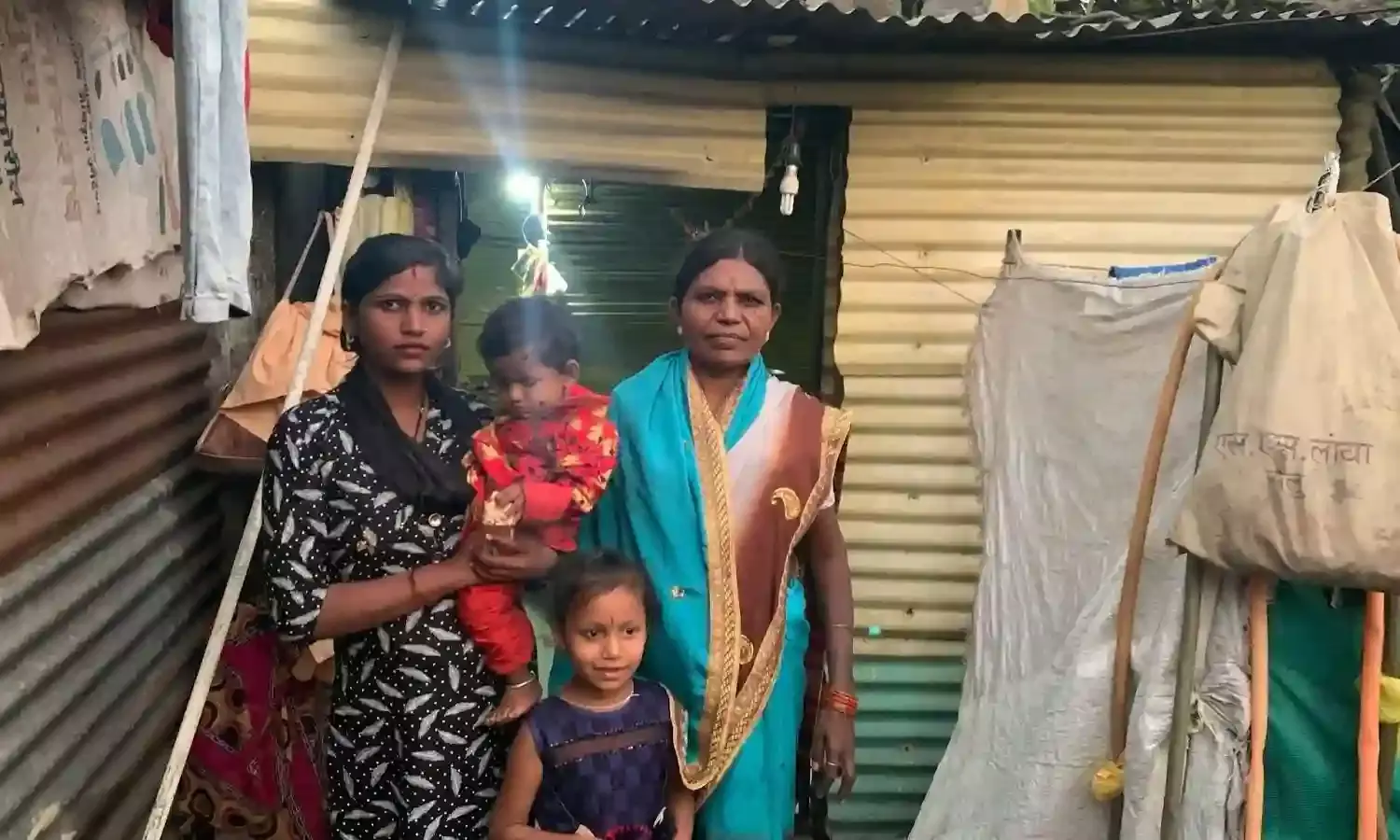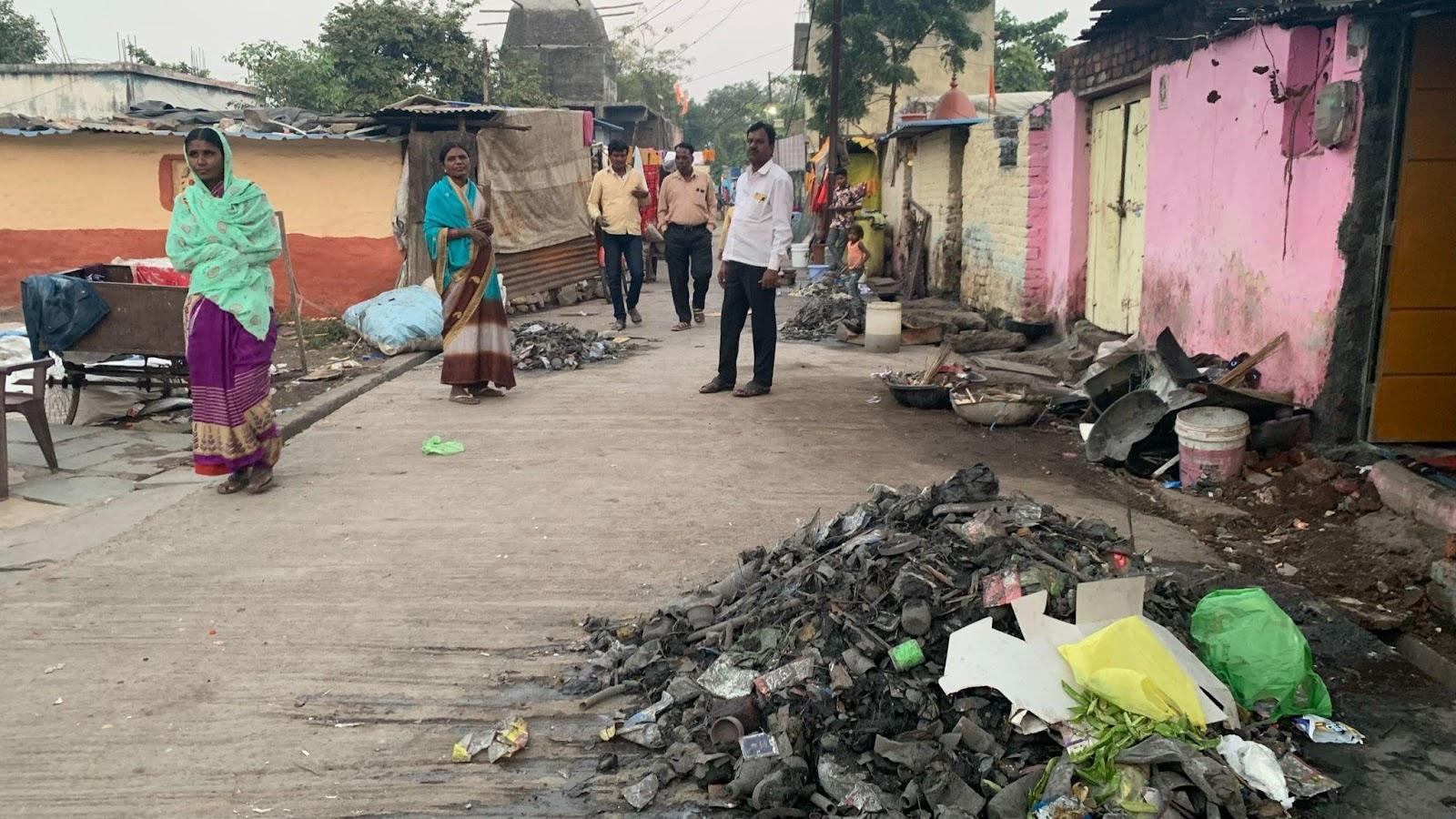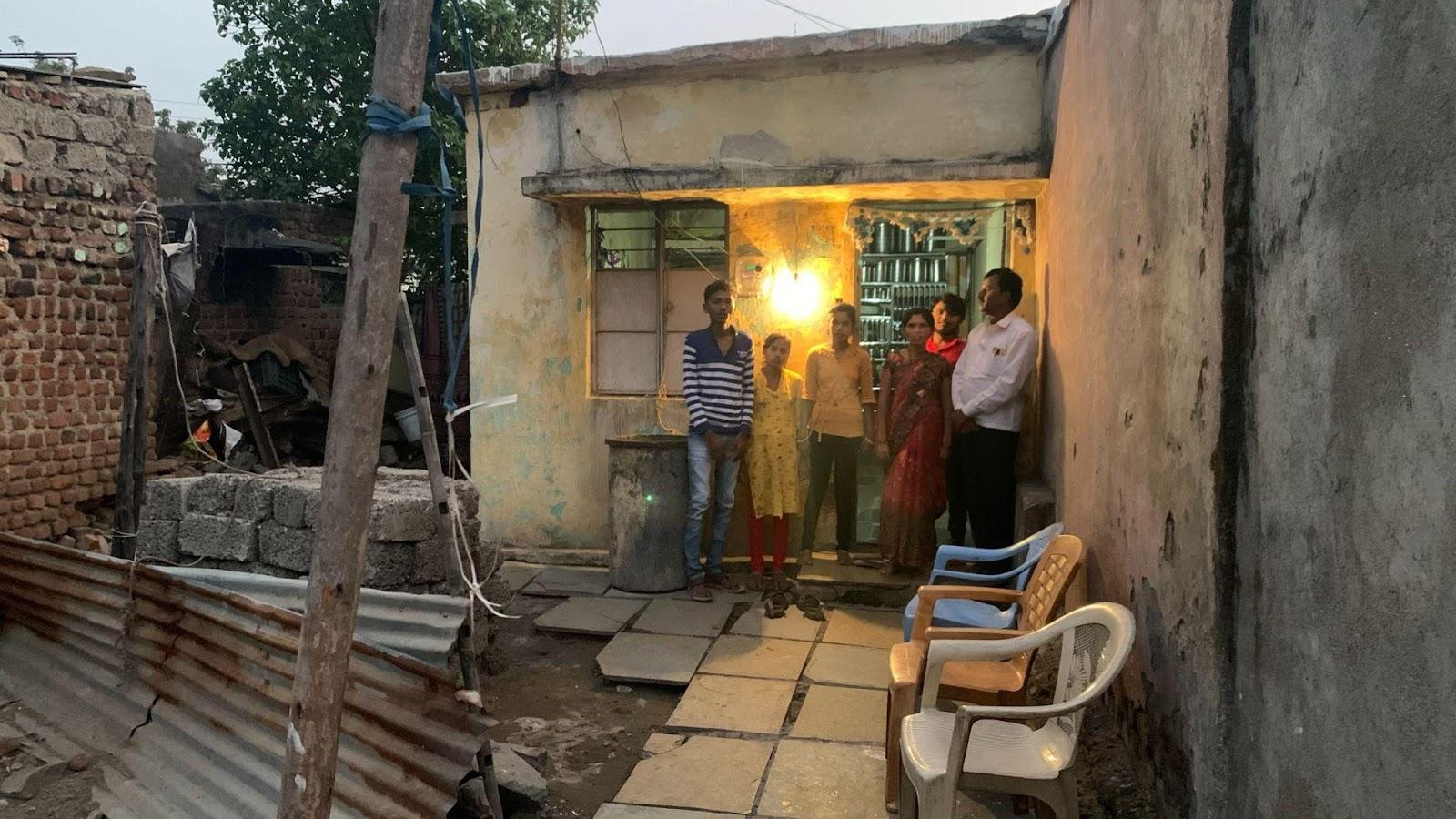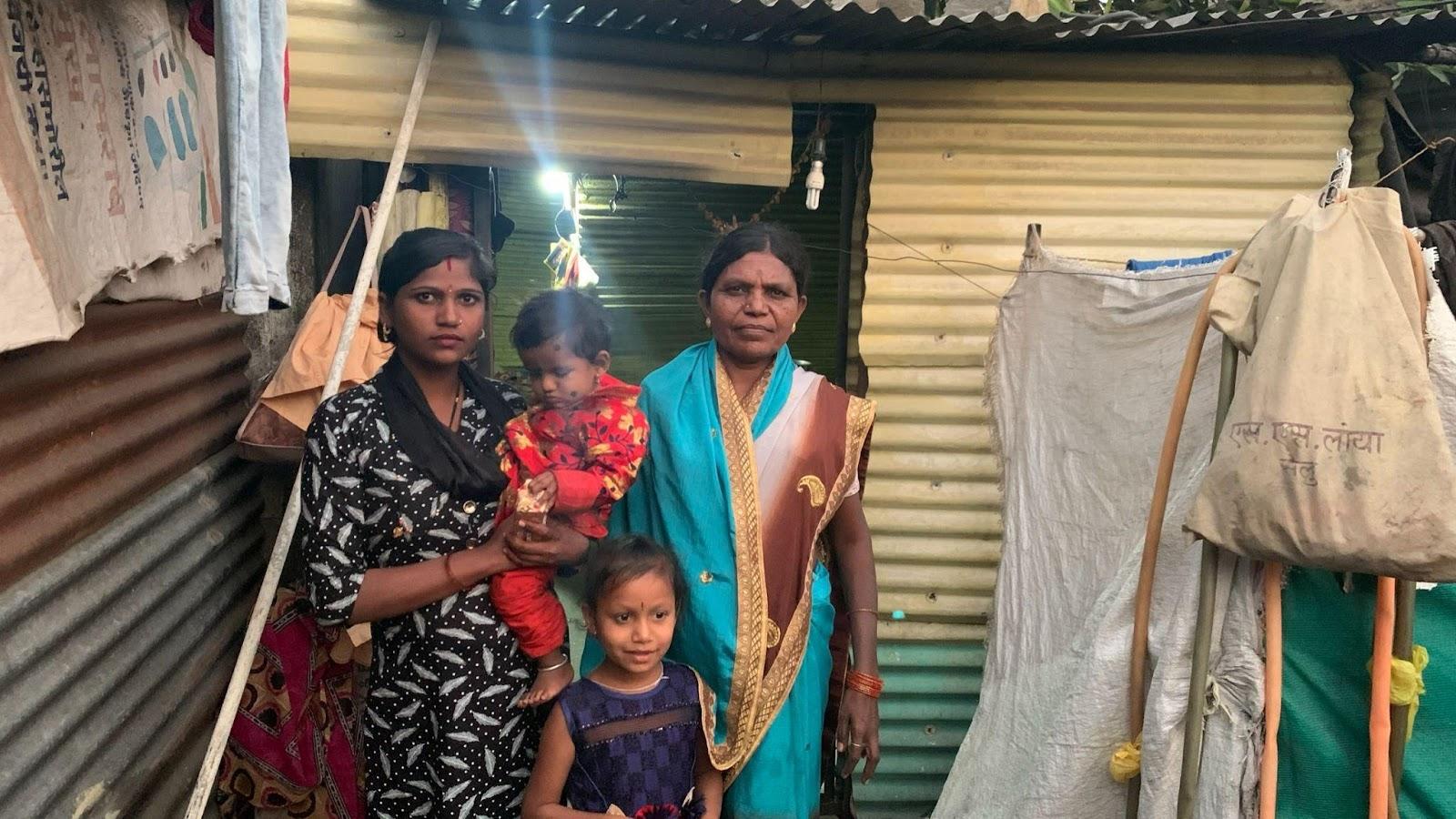‘Don’t We Deserve a Roof Over Our Heads?’
Mang-Garudis are one of 42 Schedule Castes in Maharashtra

LATUR: “Some years back this whole community was arrested overnight under suspicion, as a phone of a senior police officer was stolen. Any crime in the city and they are taken into custody because they belong to a so called criminal caste,” says Sanjay Kamble, a social worker from Latur, speaking of Mang-Garudis in the state.
Once a nomadic community, Mang-Garudis now reside in the densely peopled Vilas Nagar area of Latur, Maharashtra. They earn a living from ragpicking, which fetches a person Rs 200–500 a day. As one enters the overcrowded locality, where the road is filled with waste taken out of the gutters and sewage water all over the place, on the right side there are a few concrete houses and on the left side a slum, both equally grubby.
Housing conditions for Mang-Garudis are dreadful along with sanitation and water facilities. In 1993, of more than 200 families, 52 selected households were given concrete houses by the municipal corporation. The rest, who are promised houses on the eve of every election, still live in sheds they have erected or by creating cubicles of sarees as well as bedsheets. The concrete houses, built 18 years ago for a few families, are also not very safe.

Vilas Nagar
48 year old Ravaji Kamble is a resident of Vilas Nagar and one of the 52 people who got their housing entitlement. He lives along with the other six members of his family for whom he is sole breadwinner.
“I still remember the excitement we had after getting a permanent house, but now we don't know when which part of the house will come down. Even if you touch it the soil starts leaking from the walls,” he says.
His elder son Udhav Kamble, who is in the 10th standard, says that studying at home becomes nearly impossible during the monsoon as water starts leaking from all the walls of the house.
“In the monsoon we have to wade through knee-deep water inside the house. Sometimes water from the gutters gets mixed with the drinking water and we are left with no option but to adjust,” says 50 year old Rupabai Upadhye, who lives in a house made of an erected shed together with four family members. With folded hands she only asks for one thing, the concrete homes they were promised ever since she was a child.

Ravaji Kamble with family outside his house
Shantabai Kamble (70) is a mother of four, all of whom are married and also have children. The family have only two attached congested rooms to live in. “All the men and children sleep on the road in winter and summer. In the monsoon we do not have room to even lie on the floor,” she explains.
Adding, “My husband cannot work. I do not have money to build a house. My sons are unable to feed their own children and therefore I cannot even expect anything from them”. She has spent her whole life in congested rooms dreaming about a bigger house for her family.
In 2021, Latur’s ranking in a government sanitation and cleanliness survey improved to 38 from 138 in 2020. Lata Rasal, 33, a sanitary worker who is also a resident of Vilas Nagar went to New Delhi to receive the award on behalf of all the workers.
Asked about the living conditions in Vilas Nagar she says, “It’s ironic that all the sanitary workers, who keep the city clean, live in an area which is filthy. We are successful in keeping the city clean but are failing to maintain hygiene in our own neighbourhood.”
Rasal doesn’t have a concrete house either. “My house is built by erecting sheds and thus keeps collapsing. Not only me but many have this problem. Our only request to the government is a permanent house. Don’t we deserve a roof over our heads?”

Rupabai Upadhye with her daughter-in-law
Sanitation is a major issue here, as except for the 52 lucky households people here do not have toilet facilities, and women along with young girls are forced to go outside the locality to relieve themselves.
46 year old Digamabar Sakat, the father of three girls and two boys, says the public toilets built under the Swacch Bharat Abhiyan are in dismal condition as they are poorly maintained. Moreover, “I am scared to send my daughters to public toilets as often drunkards trouble women going there.”
The region’s vulnerability to drought makes life more challenging for those who live in slums. Overcrowded and unsafe housing, and non-provision of water, sanitation, medicare and education is everything about the Mang-Garudi community’s everyday life here.



